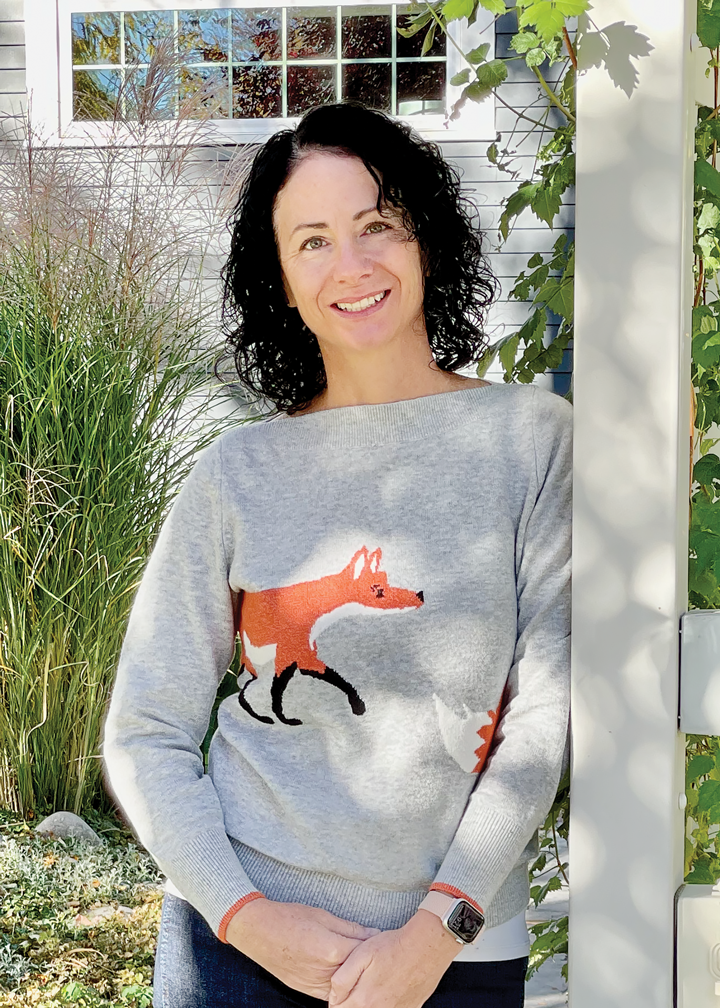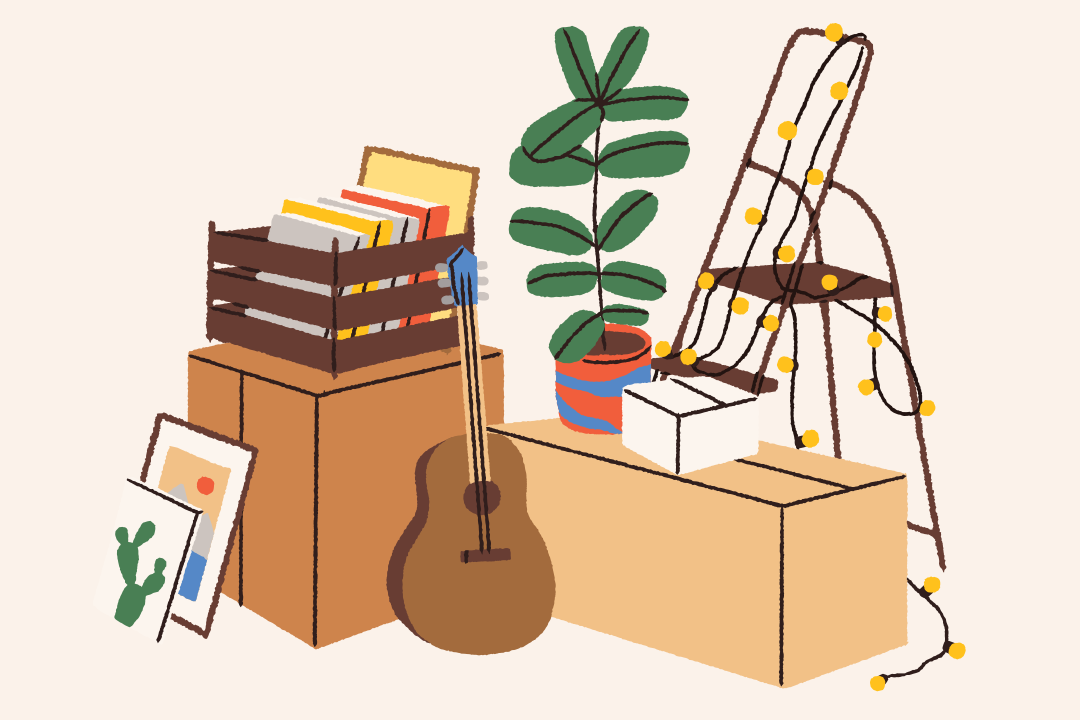The average Colorado home clocks in at a generous 2,500 square feet, but as more and more stuff accumulates, it may not feel like enough space. Garages are maxed out too, with cars kicked to the driveway to make room for golf clubs, bicycles and other odds and ends.
When a yard shed requires another shed, there seems to be only one answer: renting a storage unit. Storage facilities are a booming business nationwide, and Colorado has nearly 900 of them, according to selfstorage.com, tabulating more than 36 million square feet of space for things you don’t need or forgot you had. Although originally conceived as a temporary option, neighbor.com says about half of all storage units are rented for over a year. If this sounds all too familiar, it may be a good time to decide whether all that stuff is truly valuable or holding you back from moving on.
How we got here
Melissa Foster, owner of Happy Home Organizing in Fort Collins, explains why we love our stuff so much. “When people interact with items they value, the brain releases dopamine, a neurotransmitter associated with pleasure and reward,” she says. “So, our brains tell us that being surrounded by ‘stuff’ brings us happiness.”
Who doesn’t like to be happy? With every new season, whether for fashion or holiday, we feel the desire to accumulate more things: another cute purse (this one slightly beige, but not quite camel), an island-themed bouncy house for the grandkids’ annual visit or ill-advised rollerblades for Tour de Fat.

Melissa Foster
We also love to collect. Vinyl records, Fiestaware plates and Hummel figurines provide the thrill of finding antique treasures, while resourceful thinking tricks us into saying, “I may need this someday.” Who knows, that torn pool noodle could come in handy for some future craft project.
Finding more space
When new IKEA bookshelves and Rubbermaid storage bins lose their efficiency, we’ve entered the land of chronic disorganization, says Nicole Donovan, owner of LIVEable Life in Windsor. Yet having an organized house requires decision-making, which can make us feel like we can’t go back—or get our stuff back—and lead us to feel paralyzed. We either procrastinate and leave the emotional baggage for another day (which becomes tomorrow…and the next day…) or we expand our space to appease our indecisions.
Just like the influx of residents to our great colorful state, storage facilities are expanding to meet the demand. “As towns grow, so do storage needs,” says Alana Caron, office manager at Windsor Storage.
Caron says their long-term customers tend to store outdoor toys, such as skis, sleds, campers and watercraft, to free up garage and driveway space. One practical use for storage units, she says, is to help you go through newly inherited items: “There’s more space to sort and organize, which won’t clutter up the home.”
The 10-foot by 10-foot unit is the most popular size at Windsor Storage, which can hold the contents of an average two-bedroom apartment and offer some respite between living spaces. “Most [storage unit] rentals are for short-term solutions, like between buying and selling a home,” Caron says.
Storage units can be rented by the month for an average of around $110 in Colorado (depending on the size), according to sparefoot.com. That means a three-year stay for Grandma’s old sofa can cost around $4,000. For that much, you could have flown to Paris in business class.
Eventually, decisions need to be made.
Saying goodbye
Donovan advises that it’s time to act when “cluttered chaos becomes disruptive to daily life”—for instance, when you’re having a hard time leaving the house on time because you can’t find clothes to wear, or your free time gets swallowed up by tidying up kids’ toys.

Nicole Donovan
That kind of clutter can cause pain points that are both emotional and physical. Parting with things can be difficult, Foster says, particularly when there’s an emotional attachment to them. She says it’s common for material things to provide a sense of comfort and security, so letting go can be scary.
“Items remind us of memorable moments, meaningful relationships or significant life events,” Foster says. “When we let go of them, it can feel like we’re letting go of those memories or connections.”
Often, these feelings are less about personal associations and more about how certain items came into your possession, she says. “Was it acquired? Was it a gift? Was it expensive? Was it an heirloom? In these cases, my clients feel guilt.”
The items aren’t always heirlooms (something of great historical or monetary value), but a memory represented in physical form. Families pass them on, and they may be precious to them, but not necessarily to the recipient. Just because it’s old doesn’t mean it’s priceless.
“Often [passed down items] don’t have great monetary value,” Donovan says, but they do take up emotional space. Instead of keeping Aunt Patty’s entire 62-piece hat collection, maybe keep the one you wear.
Reclaiming your space
When the clutter gets out of control, getting started is the toughest part.
Foster recommends the four-box method: keep, sell, donate, trash. Place individual items in one of the four boxes, and do it quickly. Work from space to space. Give yourself a limited time (an hour, for example) to get through as much as possible. Get the family involved—they’re part of the problem, so let them be part of the solution. Then, when you’re ready, you can take another hour. If this is still overwhelming, Donovan recommends starting with a closet.
Moving is an opportunity for a fresh start, but we sometimes take the mess with us. “Moving from one space to another doesn’t always help organizational problems. Sometimes it just creates more room for additional things,” Donovan warns. The trick is not to fill up your space again, so be selective.
If you can’t do it alone, there is help available. Hire a professional organizer or an estate sale business to assist with the hard decisions and keep you on a schedule. The goal isn’t just to make your home look good; it should also be functional, just like those new kitchen towels from HomeGoods that match your floral summer theme.
__________________________________________________________________________________
Where to Donate
Support these local nonprofits and secondhand stores while getting a tax write-off:
Local thrift stores
Goodwill Store & Donation Center
Where to Resell
Looking for a little extra cash? Try these local options:
Bikes – Recycled Cycles, Fort Collins
Sports equipment – The Extra Mile, Loveland
Books and music – Bizarre Bazaar, Fort Collins
Kids’ clothes – Next Size Up, Greeley
Furniture – Furniture Consignments by Kristynn, Fort Collins
Where to Recycle
Waste management companies won’t allow these items in household trash:
Paint – Larimer County Household Hazardous Waste Facility, Fort Collins
Electronics – All-in-One Computer Services, Loveland
Scrap iron – Andersen’s Sales & Salvage, Greeley
Car batteries – Rocky Mountain Battery Recycling, Fort Collins






